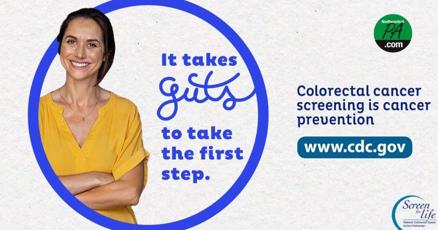Raising Awareness
As March unfolds, the healthcare community directs its focus towards raising awareness about colorectal cancer, a pressing concern in Pennsylvania where it ranks as the fourth most prevalent cancer. Startling statistics from the Centers for Disease Control and Prevention (CDC) reveal that in 2020, Pennsylvania witnessed 5,688 reported cases of colon cancer, with a staggering 2,342 resulting in fatalities. These figures underscore the urgency of proactive measures in combating this formidable disease.
Understanding Risk Factors
Navigating the landscape of colorectal cancer risk factors is pivotal in initiating timely screenings and interventions. Age serves as a pivotal determinant, with individuals reaching the age of 45 facing heightened susceptibility and thus urged to undergo screenings regardless of additional risk factors. Moreover, familial history of colorectal cancer amplifies the importance of vigilance, as individuals with immediate family members afflicted by the disease face elevated risks. Lifestyle factors, including dietary habits, alcohol consumption, and smoking, further compound susceptibility, highlighting the multifaceted nature of colorectal cancer etiology.
Embracing Preventive Measures
Among the array of screening modalities, colonoscopies emerge as a cornerstone in the early detection and prevention of colorectal cancer. Despite initial apprehensions, colonoscopies offer a comprehensive diagnostic tool coupled with therapeutic benefits, enabling the detection and removal of precancerous polyps. While the preparatory regimen may pose logistical challenges, recent advancements in medical technology have streamlined the process, enhancing patient comfort and compliance. By championing the importance of timely screenings and embracing a proactive approach to healthcare, individuals can embark on a journey towards safeguarding their well-being and potentially averting the devastating impact of colorectal cancer.
